In keeping with the focus of Art Collection Telekom on contemporary art from Eastern Europe, together with Ars Electronica they enabled a new residency that is dedicated to artists from or who stand in relation to this region. To artists who work at the interface between art, technology and science and who are particularly interested in researching the social impact of technological developments. This program intends to create a space for encounters in which artistic practice and scientific research can be combined in the best possible way.
“This was the main reason that I found this residency interesting”, says Kyriaki Goni, an Athens born and based artist and the first winner of the residency program. She works across media creating expanded, multi-layered installations, she connects the ‘local’ with the ‘global’ by critically touching upon questions of datafication, surveillance, distributed networks and infrastructures, ecosystems, human and other-than-human relations. Her artistic practice incorporates research and, in this framework, she interacts with scholars and scientists from various disciplines. After the first months of working in and on the residency, we virtually met with her to speak about the process of creating a new artwork, of the collaboration between artscience and why she would personally never buy an Alexa. The project she is working on as part of the residency will then be on display at the Ars Electronica Festival from September 8-12, 2021.
Kyriaki, you are the resident of this year’s artscience Residency by ArtCollection Telekom and Ars Electronica. What are your main research topics in general, what did you work on lately?
Kyriaki Goni: My main research topics in the last five years have been actually very concrete: Surveillance and networks and infrastructures, human and non-human relationships and in general the ways that technology shapes and impacts the way we perceive ourselves and the environment, the others, economy, et cetera, et cetera. I’d like to mention my latest work, a multimedia installation. It’s called Data Garden, which actually brings together all of these topics that I have been investigating during the last years. Data Garden is a semi-fictional story about a fictional community. As a survival strategy against surveillance capitalism, of capitalism, the community decides to withdraw all their digital information from the platforms that almost everyone uses and to store this digital memory in the DNA of a specific tiny plant that grows exclusively on Acropolis hill in the centre of Athens. And this part of the story is actually real, the plant does actually exists, it is endemic to Acropolis and was thought to be extinct until some years ago. Also the part of the story where they use the digital storage in the DNA of the plant bears elements of truth, since digital information has been successfully stored in and retrieved from plant DNA in 2016, by Karin Fister and her team. Karin is one of the four scholars and scientists with whom I discussed during my research. Parts of these discussions are presented in the installation as well. This work was commenting on data extractivism, digital sovereignty, climate justice as well as the possibility of an interspecies solidarity and about the digital future in general.
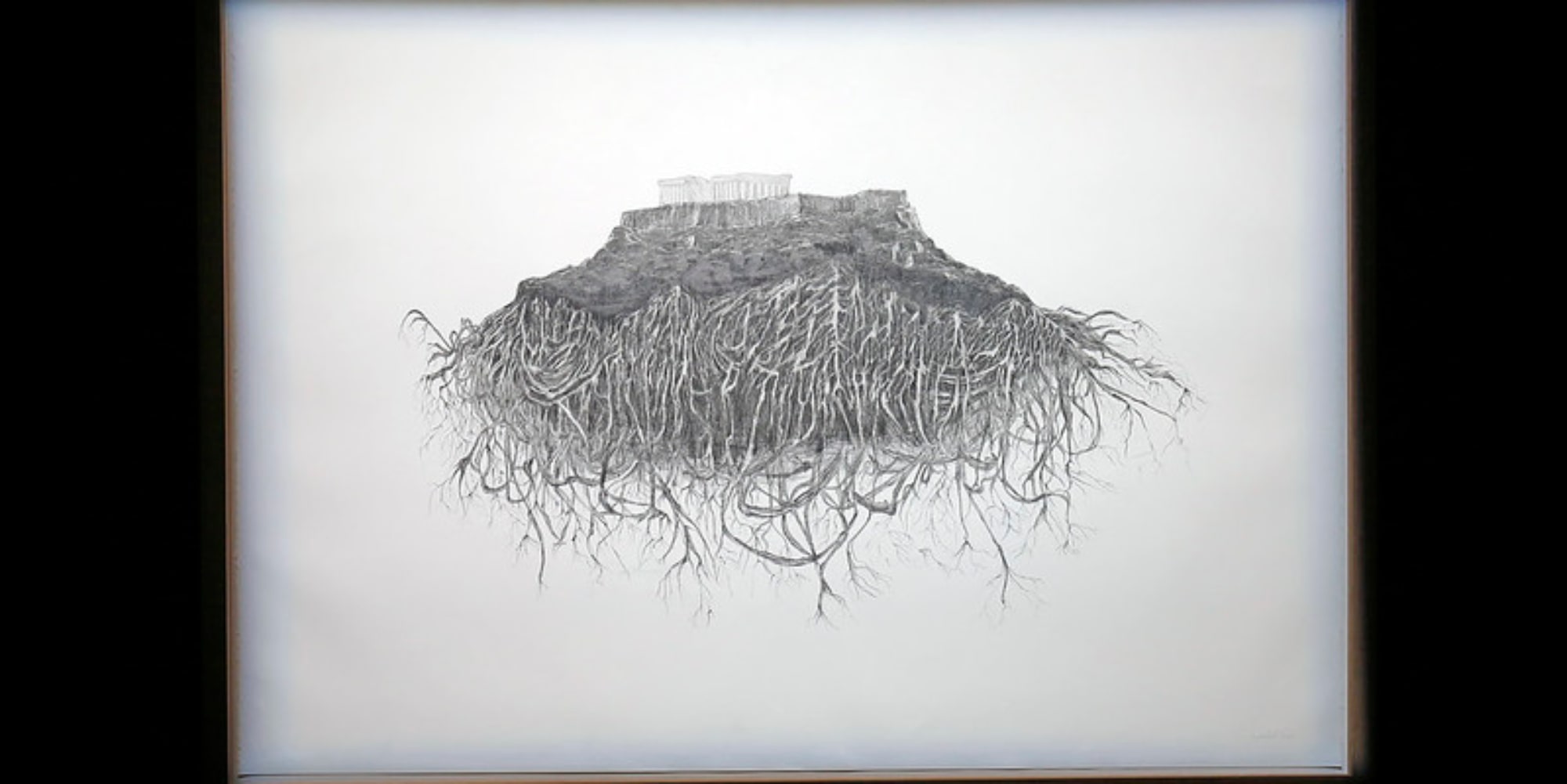
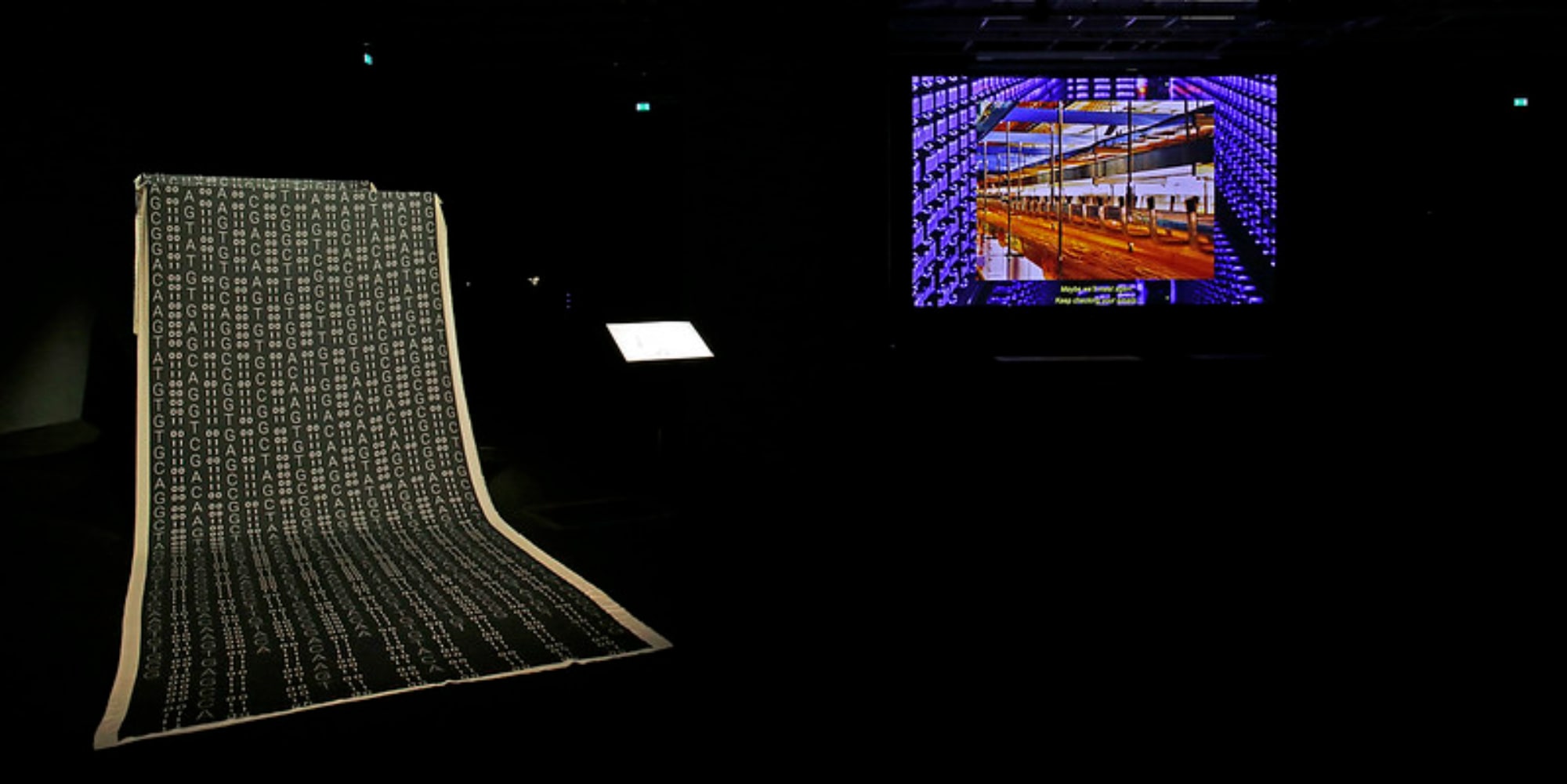
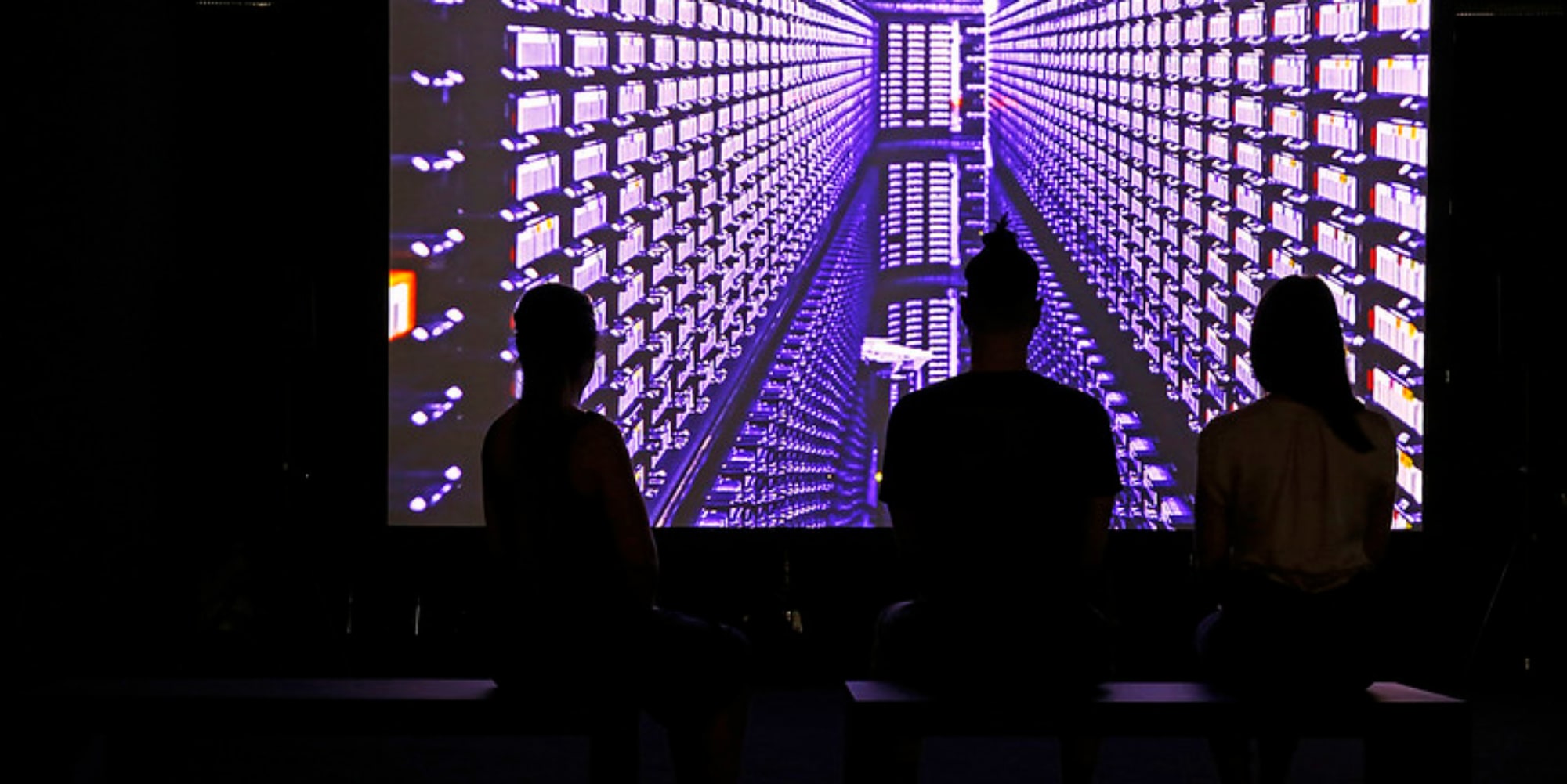
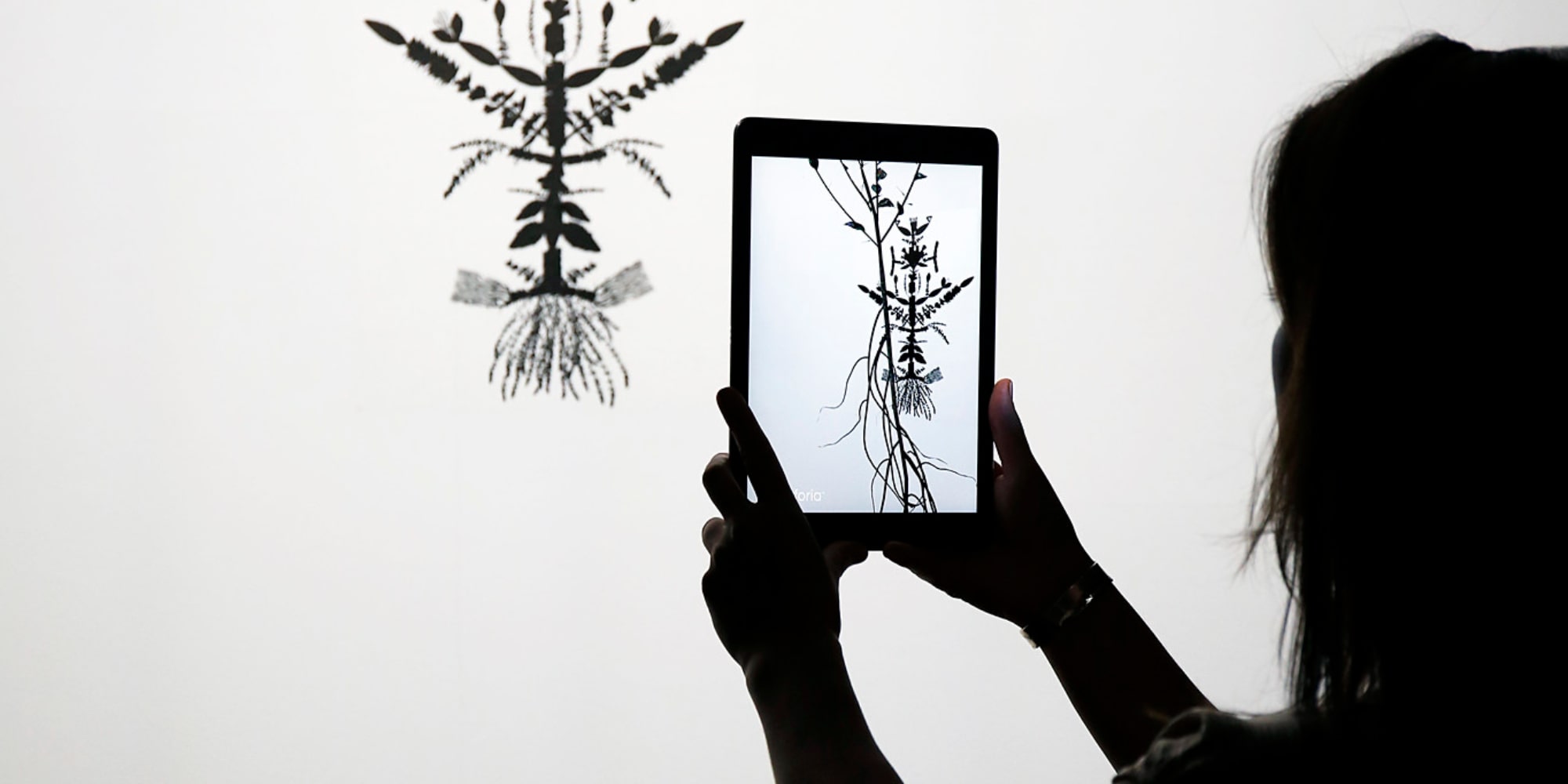
And now you are in the state of developing your new residency project. Please guide us through the process, where are you standing currently, what are your thoughts and findings so far?
Kyriaki Goni: Actually, the first part of the research process and of the residency itself were three sessions with Professor Martina Mara from the Kepler University. They introduced me to their research, which includes robotics and robopsychology and the representations of robots in our everyday life and the use of digital assistants as well as the role of non-human voice. I must say that every single field that we discussed was really interesting for me. And there were things that I was also already working on and investigating from an artistic perspective.


The one thing that drew my attention in particular was the discussion about the voice in the digital assistant technology. I started looking into that, which is something that has been present in previous works of mine. By saying that, I realized that voice is present in almost every work of mine. For example in a work that is called Networks of Trust done in 2018, I use an audio performance as the glue that brings together the whole installation. Voice is also present in an earlier work, Eternal You from 2016. Regarding the latest work Data Garden, again, voice and this time polyphony is a very important part of the installation itself. So maybe this is also the reason why I was drawn to these discussions that we had with Martina on voice. So I started looking into the relationship between voice and digital assistants and agency.
[infobox]”A great inspiration was the work of prominent scholars and researchers who approach AI and discuss bias, history, privacy and labor implications among other things: Kate Crawford, Vladan Joler, Timinit Gebru, Rosa Braidotti, Petros Papakonstantinou, Shoshana Zuboff, Neda Atanasoski, Nora N. Khan, Hito Steyerl, Joy Buolamwin, Jussi Parrikka and Liam Young. I have really enjoyed reading through all of them. Literature is always a source of inspiration too. Like for example in this case, Agency, the latest book by William Gibson and Klara and the Sun, by Kazuo Ishiguro.”[/infobox]
I read so many interesting things that had to do with bias, with gender, with class and also with surveillance. At the beginning, I was thinking to emphasize more on the role of the gender, which is something that is very relevant and contemporary in Europe and worldwide. I was looking into the ways that gender played a role in how and why the voice of these systems have always been female and have always been submissive. I was interested in the connection of the female voice with the digital voice and the non-human voice and gender bias. But while I was looking into that, I stumbled again on the surveillance parameter, which for me is my top interest. Therefore I decided to create a narrative, which would subtly incorporate the main critical discussions around digital voice assistants today, touching upon questions of surveillance and bias.
I realized that these digital systems – apart from the very, very important topic of bias that they carry in them – they are also part of the Internet of Things and of these listening infrastructures, starting to take a shape in our society right now. It’s interesting to read articles about the ways that digital assistants record voice, even if they are not awake. All of this material is recorded in order to train these neural networks.
I found that really fascinating: this huge audio archive of human voices that starts to emerge… This information and these insights were really, really interesting for me. My main scope right now is to find a way to bring all this information together and to produce a work that can engage the audience in a discussion and a dialogue about all of these issues that I just mentioned.
I’m also interested in the archaeology of these digital assistants. How it started and that these Automata in Greek have always been central in the imagination of the human mind, for example in the greek ancient myths. It seems that one of the first references to an artificial intelligence is in Homer’s “Iliades”, where he mentions that Hephaestus, the god of blacksmiths, had built these talking artificial women that supported him in his workshop. So for me, it’s kind of interesting also to go back and see the origins of these artificial voice and artificial assistants.
Long story short: Now, I am in the process of bringing all this material together and trying to build a narrative that will invite the viewer to understand, to reflect and to be part of the discussion of what kind of technologies do we want for our future?
“What kind of technologies do we want for our future?”
For me, it sounds like you leave it open to the public, to the spectators, how they want to reflect on your artworks. But for you personally: are there some problematic points of the surveillance aspect or do just want to present your findings and leave it up to the spectators, what to think of it?
Kyriaki Goni: I mean, this is a good question. All of my works are trying to communicate these thoughts and points of view that I have as a person living in this present and also in Europe, but I don’t want my words to be restrictive. For me, the scope is to share a story with the audience and to share through the story some of my thoughts and concerns.
Nevertheless I want to offer the space and time for each person to reflect and to draw their own conclusions and to try to figure out what’s the next step. I should mention here that most of the times, the feedback that I receive from the audience is very positive, they are willing to get involved in a discussion in order to understand more and to try to find out how this technology can be an inclusive one.
Speaking of surveillance through interfaces – Do you think living without surveillance is possible in a digital world? And what does the digital age need to work on, to become more fair and inclusive?
Kyriaki Goni: To be honest, until now, I don’t have an answer to that, as I’m in the middle of all of this research. Most probably our future won’t be without surveillance, but I think that it is a good start to try to be more aware and more critical about the technologies that surround us, such as AI for example.
“I think that it is a good start to try to be more aware and more critical about the technologies that surround us.”
On the other hand, AI systems have proven to be of enormous help in some fields, in the area of medicine for example, AI has provided huge help for prognoses. Or in astronomy, in my work Counting Craters on the Moon 2019, I realised that when I was discussing with astrophysicists at the Center of Planetary Studies in Toronto, Canada and the National Observatory in Athens. In any case, it’s important that we have started discussing these things and that art and science have been in dialogue trying to build bridges and to communicate to broader audiences about this stuff.
I’m not capable of predicting how this will eventually conclude. This is also the reason why I tend to investigate these things in my work: there are things that concern me in my everyday life as a citizen, so this is a way to concentrate my own concerns and answers and questions.

Do you personally use voice interfaces or do you have experience with using them?
Kyriaki Goni: Thank you for this question. During this research, I was thinking, should I buy an Alexa to have the actual experience? And until now I haven’t bought it, to be honest, and I think I won’t do it. I feel a little bit uncomfortable to have it in my house. Instead I have been collecting technical and theoretical information from my readings and some discussions with people that have actually been using digital assistants in their everyday life.
This is something that I also think about a lot in my work: Should I use the actual technology in order to comment or discuss or investigate the impacts of it? And my answer is no. I don’t need to actually run a neural network and consume resources for making an artwork to comment on this discussion. I mean, if it’s really important and crucial for the artwork itself, that’s okay. But I don’t think, that because my work focuses on the technological impact on our society, I should, by default, use these technologies to make a point.
Thank you very much for this discussion, it was very intriguing and we are very much looking forward to having your project at the Ars Electronica Festival 2021!
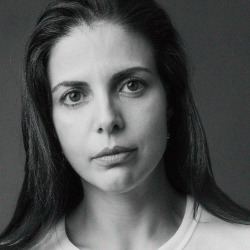
Kyriaki Goni is an Athens born and based artist. She works across media creating expanded, multi-layered installations. She connects the ‘local’ with the ‘global’ by critically touching upon questions of datafication, surveillance, distributed networks and infrastructures, ecosystems, human and other-than-human relations. Her artistic practice incorporates research and, in this framework, she interacts with scholars and scientists from various disciplines. She presents work internationally in solo (Aksioma, Drugo More, Onassis Foundation) and group exhibitions (13th Shanghai Biennale, Modern Love, 5th Istanbul Design Biennale, Transmediale, 13,700,000 km^, The Glass Room etc). She is a Delfina Foundation alumna (2019) and a Niarchos Artworks fellow (2018). Her latest work Data Garden received the state prize INSPIRE2020 from the MOMus Experimental Center of the Arts in Greece. Her artistic research gets published, while Goni frequently designs and implements workshops as part of her practice. With prior graduate studies in Fine Arts, Goni also holds an MA in Digital Arts along with a BA and an MSc in Cultural Anthropology and Development Sociology.